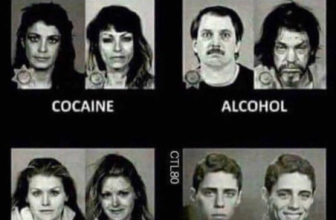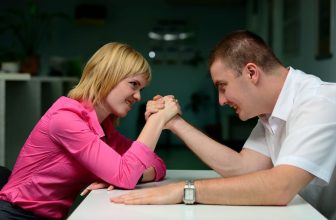
Dating Apps and Matching is Done in all the Wrong Ways
Through Dating Refinery and other endeavors, we have been researching dating and relationship quite a lot over the past several years. Therefore, we wanted to share some information we gathered, and experience from our ongoing conversation that we have been having regarding relationships and finding a mate.
One thing we read recently in Psychology Today, stands out as an important message to those looking for a relationship and that is, “There’s no reliable assessment that can predict whether someone is going to be a good match for you or not.” The article, 15 Things Women Want from the Men in Their Lives in the paragraph Specific to Romantic Partners identifies “no dating site algorithm that can predict a human heart.”
Let’s look at why Dating Apps and Matching is Done in all the Wrong Ways
Dating Characteristics and Dating Apps
Love cannot be truly predicted, which seems very true for anyone trying to find it. The makers of Dating Sites have been trying for years to make valuable connections by predicting the factors that would make two persons attracted to each other, and ultimately love each other.
The formula is hard to discover and only Jerry Lewis in the Nutty Professor can actually build a love potion that works. Of course, the film takes its name from the 1959 hit song, “Love Potion No. 9”. The story is about a love potion, that enables a person to make people of the opposite sex become completely infatuated with them by simply talking. Too bad that it isn’t this simple, right?
Per Psychology Today, “even when a potential partner brings all of the desired qualities to a relationship, that’s no guarantee that the two of you will have good “chemistry” or meet up at the right time for each of you to enter a new relationship.”
Match algorithms typically use Compatibility criteria, which is about matching based upon simple alignment criteria and qualities, and then use of Collaborative Filtering (i.e., this means an app looks for patterns in who users have said yes or no to, looks at how this resembles other users, and tries to resemble others to make predictions upon who might like you.).
Compatibility first uses ‘Date Resume-like’ criteria or must haves to match people, or deal breakers to reject people. Compatibility uses things like: are they professional or not, how successful are they by looking at education, what experience do they have, what is their age, etc. Then the Dating Algorithm looks at areas such as religion, values, culture, looks, height, weight, smoking habits, drug habits, etc. These form a list of ‘matchable’ criteria or traits.
Each area is weighted for the criteria’s importance to the match, not necessarily the importance to what the person is actually seeking. As the Wired article, It’s 2021, why are dating app algorithms still so bad? | WIRED UK points out, a user, “might list qualities like height and education level as non-negotiables. “But when they meet someone in real life, those aren’t actually the criteria they use to assess if there’s a spark there.” Compatibility and desirability can be poles apart.”
Desirability over Compatibility
Desirability is more about traits like chemistry, looks, a person’s swagger and confidence or attitude, charisma, personality, all of the things that cannot be easily measured or defined.
A matching system centered on Desirability would then use the intangibles (kindness, happiness, inner harmony, joy, good health, creativity and ideas, and peace), followed by criteria like goodwill, religion, values, morals and character and finally compatibility basics like height, weight, etc. Desirability gives more weight to individual preference but again is hard to predict.
Per the BBC article by William Park, How dating app algorithms predict romantic desire – BBC Future, the distance between a potential partner and your idealized partner in your hypothetical was the best predictor for attraction. This slightly tailored quote is from Dr. Daniel Conroy-Beam, an assistant professor from the University of California Santa Barbara, US, who describes an algorithm that is used for matching desirability.
Per Park regarding a study by Dr. Samantha Joel, assistant professor at Western University in London, Canada. Her researchers felt like they had three things they needed to be able to predict romantic desire.
- The first is actor desire, or, on average how much people liked their dates compared to others. This captured how choosy each person was.
- Second is partner desire, or, how much did people like you compared to their other dates. The reverse of actor desire, this is a measure of average attractiveness.
- By subtracting choosiness and attractiveness from daters’ scores of romantic interest, the researchers had a more accurate measure of compatibility. Joel found that her algorithm could predict actor desire and partner desire, but not compatibility.
But, per Joel. it failed miserably ““It was completely useless,” says Joel. “It really should have done better.”
The study looked at questions such as, “Did they click with a lot of people or did they find it hard to feel chemistry? By comparing daters to each other on choosiness the researchers could control for people who might make a lot of potential connections mostly because they were quite open-minded about who they would like to date.”
Joel said, “when two people actually meet they form a shared dynamic that is more than the sum of its parts and cannot be predicted. Their individual preferences do not make up the substance of what they find attractive.”
At Dating Refinery, a number of people we know, talk about getting Dating apps and getting matched on things they don’t care about. But, it is hard to make a dating site that actually matches on individual’s interests.
According to the article, another reason why Dating Apps and Matching affects people in the wrong way. People judge online profiles before they have a chance to meet or even talk to their potential dates.
In real life, people meet, then later learn of potential deal breakers. “You might not find out that someone is a smoker, or that they have another horrible quality, until you meet in person, or even several dates down the line. We hardly broadcast our less desirable qualities at the first opportunity.”
Desirability factors are harder to interpret and predict than that are assumed by compatibility (matching) factors like height or religion preference. Both are important!!!
Long Term vs. Short Term Relationships
Again according to the article, we have different sets of preferences depending on whether we are looking for something long-term or short-term, Conroy-Beam says. “Generally speaking, when were are only interested in short-term relationships we prioritize physical attraction, whereas for long-term relationships, kindness and other signals that someone would be caring are a greater priority.”
We are still reliant on being able to pick up on intangible cues from talking to each other, but at least there is some evidence that good guesses can be made about who we might generally be suited to, “What is definitely clear,” says Conroy-Beam, “is that humans make diabolically complicated choices.”
There is no short answer or short cut process regarding to how to predict human interaction, as desirability is hard to predict, or to harmonize a relationship, as human nature is hard to predict.
You should compromise on the things that don’t matter and double down on the things that do matter.
The Perfect Person May Not be Perfect for You
We would like to add that if you think you found the person that is the best possible person out there that is available, who likes you. You still have to answer the question of whether they are the right person for you and are they ready. They are great, but are they the right person and the right fit for you?
According to Mathew Hussey, “Relationships cannot be about unconditional love.” You need to ask if this person is acting like a teammate, or are they a person who just needs validation at this point in their life?”
You have to ask yourself, does that person meet your values? Is that person even open to the prospect of a long-term relationship? If they tell you they aren’t looking for a long term commitment, you should listen to them instead of trying to change their mind.
Again, they might be a great person, but not be a good fit for you. It is the best relationships, when you can completely be yourself with the other person.
If you are feeling cared for and are happy, those are great signs that a person you are dating is a good fit for you.
Timing is also paramount. They have to be ready at the time you are ready. According to Hussey, if you staying with them when they are not ready, isn’t going to make them more ready. He says in some way you stunt their development by staying with them. It could keep them in a phase of being unable to work through the things they need to work through, when they need to work through it to become ready.
You need to look for someone who is open and ready for a relationship. Don’t stake your time on someone who is not ready.
Conclusion
Lastly, we would add that as a whole, there are other issues to contend with when establishing the connection when a person is searching for and connecting with a partner.
Dating Apps and Matching requires multiple pieces of information. We will discuss these in other posts, but if you want to do a little research on your own, take a look at attachment styles, cultural or societal mores, tendencies, intentions, and personalities, among probably countless others.






